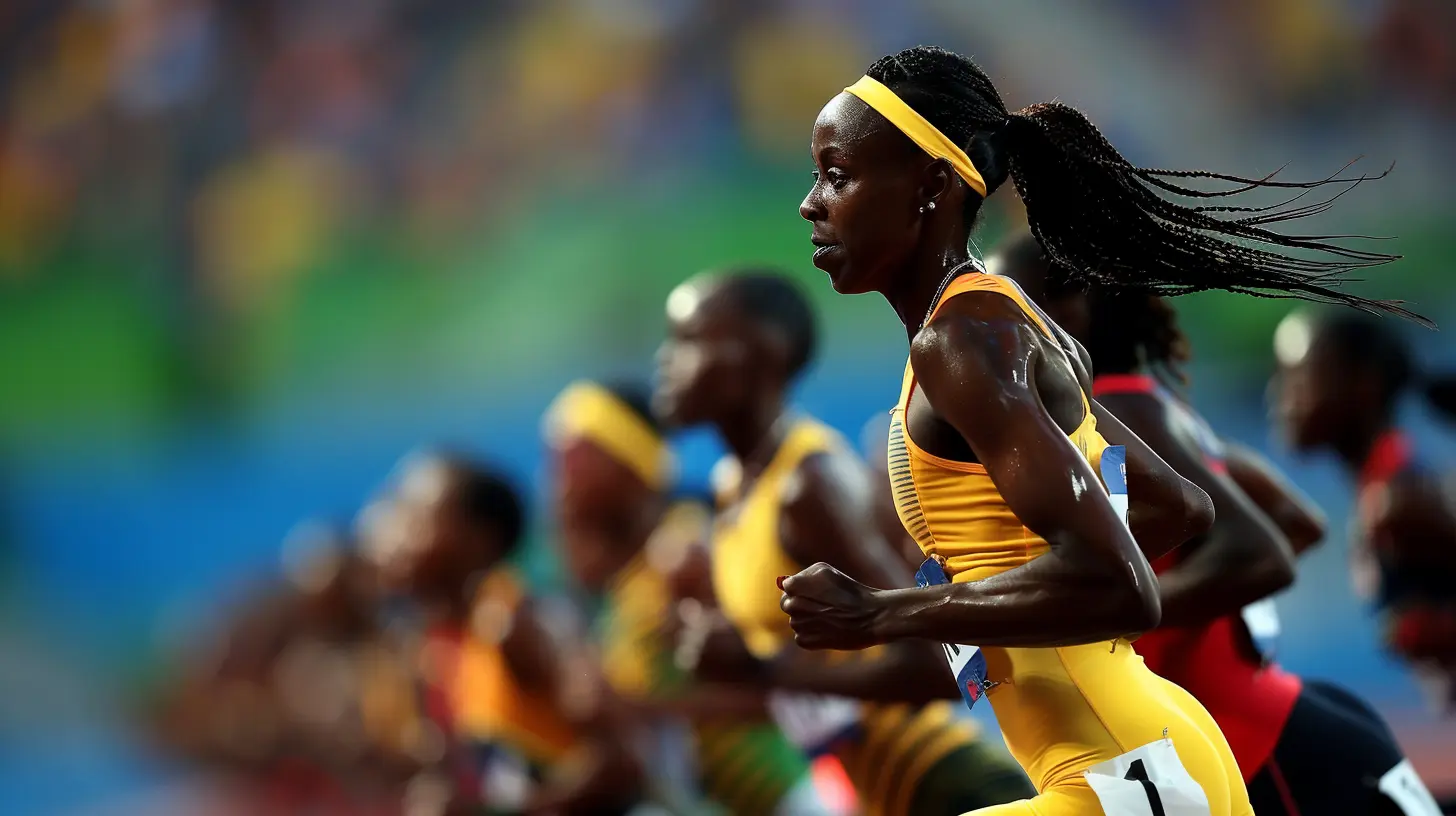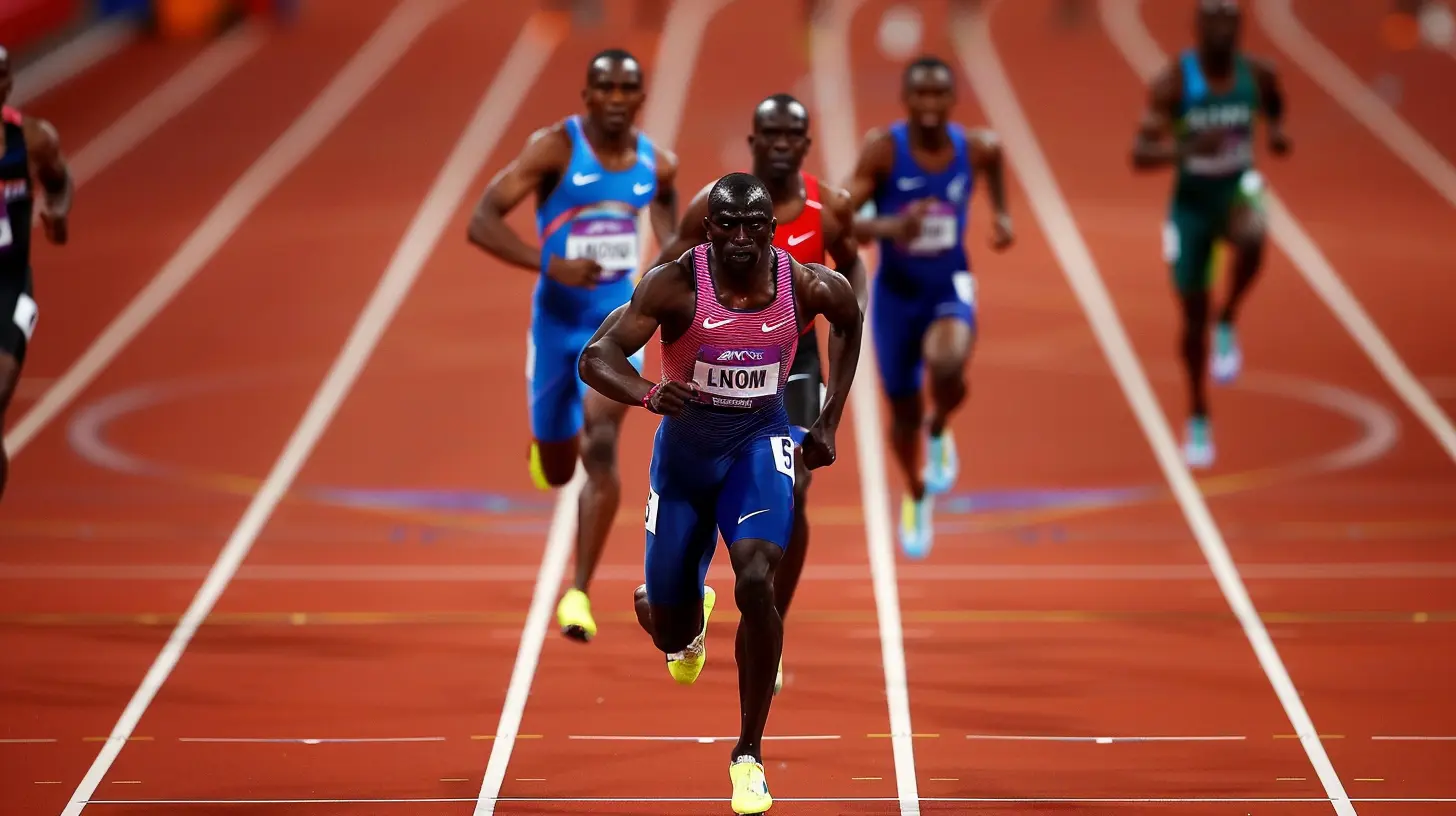Top Warm-Up Routines for Peak Performance in Athletics
21 August 2025
Whether you're stepping onto the track, hitting the field, or gearing up for a lifting session, there's one thing athletes can’t afford to skip—warm-ups. Think of them like your morning coffee: you can function without them, but everything just runs smoother when you have that little boost to kick-start your system.
In athletics, performance is everything. And guess what? The right warm-up can be the secret sauce that separates "just okay" from "crushing it." In this guide, we're diving deep into the top warm-up routines for peak performance. We'll cover the why, the how, and give you actual warm-up examples you can steal today.
Let’s get your body fired up!
Why Warm-Ups Matter More Than You Think
Warming up is like hitting the ignition before a race—you wouldn’t just floor it with a cold engine, right?Here’s What a Good Warm-Up Does:
- Increases blood flow to your muscles- Boosts your core temperature for better flexibility
- Activates your nervous system, prepping you for explosive movements
- Reduces risk of injury by gradually awakening your body
- Mentally gears you up, helping focus and confidence
Bottom line? Skipping your warm-up is like showing up unprepared for a big test. Not a good move.
The Anatomy of an Effective Warm-Up
So, what exactly makes a warm-up legit? It’s not just about jogging a few laps and calling it a day.A complete warm-up should include the following:
1. General Warm-Up
2. Dynamic Stretching
3. Movement-Specific Drills
4. Neuromuscular Activation
5. Sport-Specific Movements
Let’s break each of these down with some flavor, shall we?
1. General Warm-Up: Get the Engine Running
Think of this as the "wake up, sleepyhead" phase.You’re increasing your heart rate and blood flow to key muscle groups. This stage gets your body out of rest mode and ready to rumble.
Try This Combo (5-10 minutes):
- Light jogging or cycling- Jumping jacks
- Arm circles
- High knees
- Butt kicks
This isn’t meant to kill you—just get a sweat going. You want to feel warm, not worn out.
2. Dynamic Stretching: Mobility with a Purpose
Gone are the days of static stretching before workouts. Now, it's all about dynamic stretching—controlled, full-range movements that mimic what you’re about to do.Why dynamic over static?
Static stretches can temporarily weaken muscles if done before explosive activities (like sprinting or lifting). So save those for the cooldown.Dynamic Stretching Routine (5-10 minutes):
- Leg swings (front-back and side-to-side)- Walking lunges with torso twists
- Arm swings across your chest
- Hip circles
- Inchworms
- Toy soldiers (walking straight-leg kicks)
These loosen your joints and gently stretch muscles in motion. Think of it as setting the stage for power, speed, and agility.
3. Movement-Specific Drills: Dial It In
Now that your engine’s humming, it’s time to fine-tune things.This is where you mimic your sport’s base movements but at a lower intensity. The goal? Prime your coordination and firing patterns.
Examples by Sport:
- Sprinters: A-skips, B-skips, high-knee bounds- Basketball Players: Defensive slides, low shuffles, jump shots (light pace)
- Lifters: Bodyweight squats, bar-only lifts, glute bridges
- Swimmers: Arm windmills, streamlined jumps, hip openers
Choose 3–5 drills based on your needs and perform them for 30 seconds to 1 minute each.
4. Neuromuscular Activation: Spark the Power
Okay, now we’re getting serious. This stage revs up your fast-twitch muscle fibers, prepping your nervous system to react and perform at max intensity.Think of this phase as flipping the switch from “ready” to “let’s go!”
Activation Drills:
- Short sprints (10–20 meters)- Jump squats
- Skater hops
- Bounding (long or vertical)
- Power skips
- Plyometric push-ups
Keep the volume low—this isn’t your workout, remember. 2–3 sets of 3–5 reps is enough.
5. Sport-Specific Warm-Up: Game Time Preview
Almost there! Time to do a mini-preview of your main event.This part involves performing key sports movements at increasing intensity, simulating your actual performance conditions.
A Few Examples:
- Track Athletes: Do a few build-up sprints at 60–90% effort- Soccer Players: Practice ball control, short passing, and quick cuts
- Weightlifters: Gradually increase load with lighter sets
- Basketball Players: Lay-up lines, pivot drills, light scrimmage
This is about confidence now. You’re greasing the groove so your body feels like, “Oh yeah, we’ve done this. Let’s roll.”
Sample Warm-Up Routines for Every Athlete
Here’s where it gets juicy. You want specifics? We’ve got ‘em.🏃♂️ Sprinter's Warm-Up (Total: 20–30 minutes)
1. Jogging – 5 mins light2. Dynamic Stretch – Leg swings, A-skips, high knees
3. Drills – B-skips, butt kicks, bounding
4. Neuromuscular Activation – 3x10m sprints
5. Build-Ups – 3x60m sprints at 60%, 75%, and 90%
🏀 Basketball Warm-Up (Total: 15–20 minutes)
1. Jump Rope – 2 mins to raise core temp2. Dynamic Drills – Arm swings, lunges with rotations
3. Shuffling Drills – Defensive slides, fast feet
4. Plyos – 2x5 vertical jumps or skater hops
5. Skills Practice – Lay-ups, dribbles, short drives
🏋️♀️ Weightlifting Warm-Up (Total: 15–25 minutes)
1. Rowing or bike – 5 mins moderate pace2. Mobility Work – Hips, shoulders, thoracic spine
3. Bodyweight Exercises – Squats, lunges, planks
4. Barbell Only Reps – 2x10 reps movement-specific
5. Add Weight in Sets – Work up to 60-80% of working load
Tips for Building Your Own Warm-Up
Don’t want a cookie-cutter routine? Here’s how to create your own killer warm-up tailored to your needs:Know Your Sport
Power athletes (like sprinters or lifters) need explosive prep. Endurance athletes should focus more on activating and preserving energy.Listen to Your Body
Still stiff? Extend dynamic stretching. Already warm? Jump ahead. You’re not a robot—adapt!Keep It Progressive
Start easy, then layer intensity. Don’t jump straight into sprinting or cutting.Practice Mindfulness
Use your warm-up to check in—How do my muscles feel? Am I mentally locked in?Common Warm-Up Mistakes Athletes Make
Let’s save you from the usual pitfalls:🚫 Skipping it altogether – Big no-no. You’re asking for injury.
🚫 Making it too intense – You shouldn’t be tired before your workout.
🚫 Only doing static stretches – Save them for post-workout cooldowns.
🚫 Not warming up specific to your sport – Doing curls before a soccer game? Not it.
🚫 Being inconsistent – A random warm-up = random results.
The Science Backs It Up
Don't just take this as gym talk. Research has shown that dynamic warm-ups:- Improve vertical jump and sprint times
- Increase muscular performance
- Reduce injury rates by up to 50% in some studies
- Sharpen reaction time and coordination
It’s not hype. It’s proven.
Final Thoughts: Warm-Up Like a Pro
Look, warm-ups aren’t just a box to check. They’re an essential part of your performance, period.Whether you’re chasing a new PR, trying to stay injury-free, or just looking to dominate your sport—your warm-up is the launch pad.
Train hard. But warm up smarter.
Frequently Asked Questions
How long should a proper warm-up take?
Typically, 15–30 minutes depending on your sport and session intensity.What’s the difference between dynamic and static stretching?
Dynamic = movement-based. Static = holding stretches. Use dynamic before workouts, static after.Can I use foam rolling as part of my warm-up?
Absolutely! It can help release tight areas, improve circulation, and prep you for action.Should warm-ups change based on the workout?
Yep. High-intensity sessions need more activation and ramp-up than light recovery days.all images in this post were generated using AI tools
Category:
AthleticsAuthor:

Onyx Frye
Discussion
rate this article
1 comments
Astrid Sullivan
This article effectively underscores the importance of tailored warm-up routines in enhancing athletic performance. By integrating dynamic stretches and sport-specific drills, athletes can optimize their physical readiness and reduce injury risks. Personalization is key, as individual needs vary significantly among different sports disciplines.
September 13, 2025 at 4:43 AM

Onyx Frye
Thank you for your insightful comment! I completely agree—tailoring warm-up routines to individual needs is crucial for maximizing performance and minimizing injury risks.


